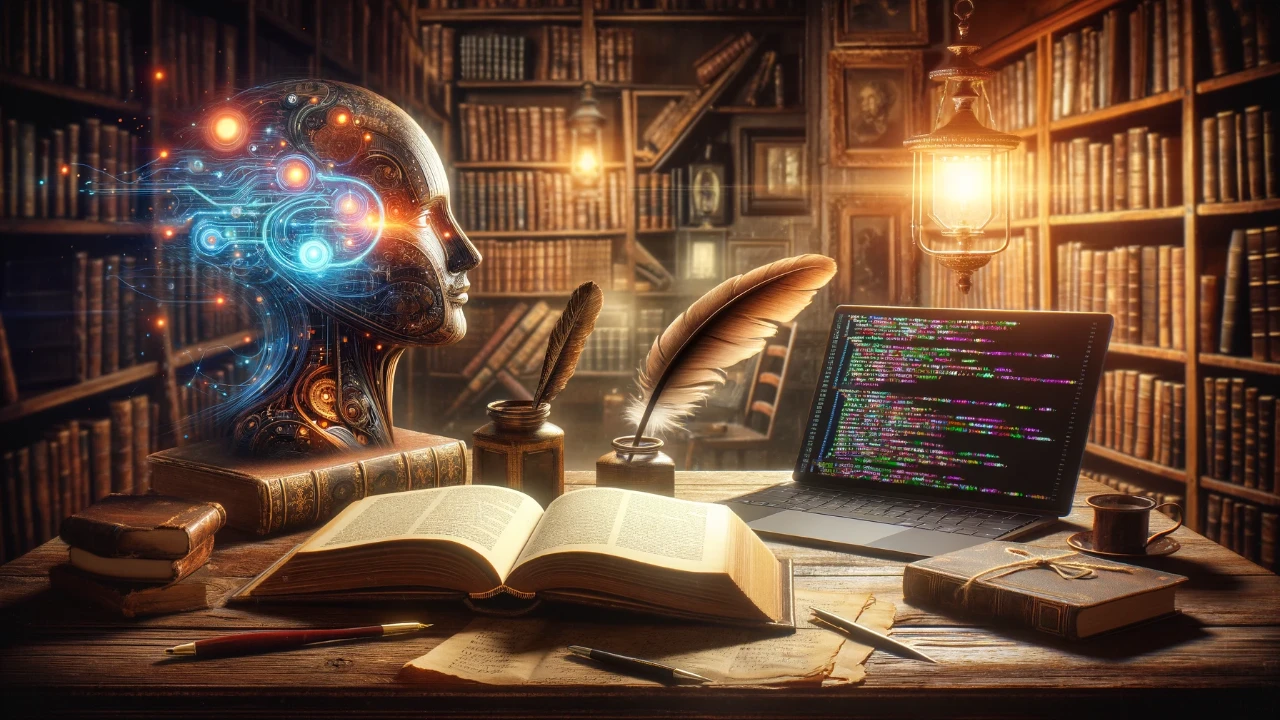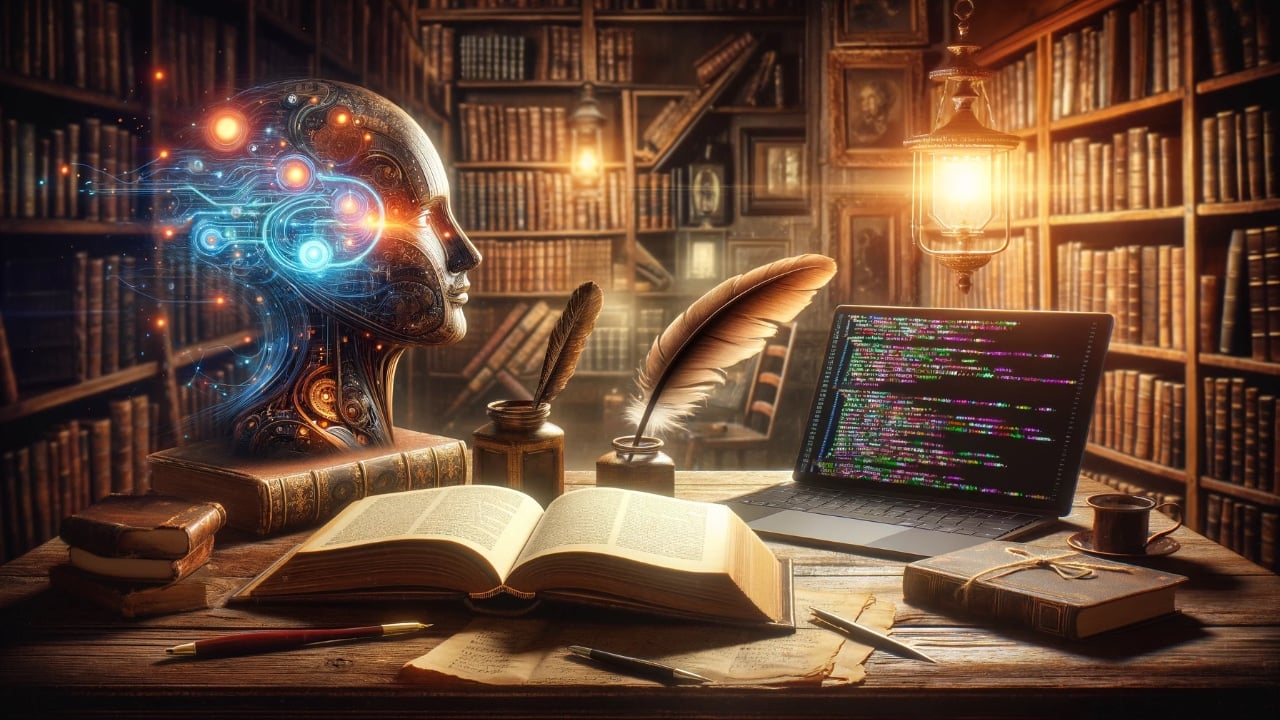
This guide is designed to show you how to use AI tools like ChatGPT and Google Bard for creative writing. For centuries, writers have wrestled with the blank page, seeking to breathe life into characters and worlds through the alchemy of words. Today, two powerful tools – ChatGPT and Google Bard – have emerged, offering a new frontier for creative writing. While some fear these AI writing assistants as harbingers of creative doom, others see them as potent allies, ready to ignite imagination and polish prose. Unlocking the master within yourself requires understanding these technological collaborators’ strengths and limitations. This article delves into the art of mastering creative writing with ChatGPT and Google Bard, empowering you to leverage their capabilities while retaining your unique voice.
Understanding the Tools:
ChatGPT
Known for its fluency and adaptability, ChatGPT excels at generating text, mimicking writing styles, and crafting believable dialogue. Think of it as a prolific brainstorming partner, churning out ideas, outlining scenes, and generating character backstories. It can weave intricate plots, invent fantastical worlds, and spin-off diverse narrative threads. However, its strength can become a weakness, as its tendency to prioritize coherence over depth can lead to formulaic plots and predictable characters.
Google Bard
Bard, with its emphasis on factual accuracy and information retrieval, shines in world-building, research, and internal consistency. It can pull from vast datasets to flesh out historical settings, craft realistic scientific explanations for fantastical elements, and ensure continuity across your narrative. Think of it as a meticulous fact-checker and world-building consultant, adding layers of richness and believability to your work. However, Bard’s strength can also be a hurdle, as its focus on factual accuracy can sometimes stifle the wild leaps of imagination that fuel creative writing.
Harnessing the Synergy
The key to mastering creative writing with these tools lies in recognizing their individual strengths and combining them strategically. Imagine yourself as the conductor of a grand orchestra, where ChatGPT and Bard serve as complementary instruments. Utilize ChatGPT’s imaginative force to generate ideas, explore avenues, and break through writer’s block. For example, ask it to invent a fantastical creature, describe a hidden city in a lost jungle, or write a dialogue between two rival scientists. Then, bring Bard into play to refine and ground those ideas. Fact-check historical details, flesh out the scientific principles behind your fantastical creature and ensure the internal logic of your hidden city holds up.
Beyond Brainstorming:
The collaboration goes beyond generating raw materials. Use ChatGPT to explore character motivations, push them into unexpected situations, and generate internal monologues that reveal their hidden depths. Ask it to write a scene from a different character’s perspective, or propose alternative endings to test the strength of your plot. Bard, meanwhile, can help you craft precise descriptions, ensure consistency in character voices, and identify inconsistencies in tone or pacing. Think of it as your personal editor, pointing out awkward phrases, suggesting stronger verbs, and ensuring your prose shines with clarity and precision.
The Human Touch
Remember, AI tools are mere instruments. The magic lies in your hands, your mind, and your heart. ChatGPT and Bard can generate text, but they cannot capture the nuances of human emotion, the weight of lived experience, the spark of genuine wit. Your role is to infuse your creations with your unique voice, your personal observations, your emotional tapestry. Use the ideas they generate as springboards, not replacements. Take their suggestions, mold them, twist them, and make them your own. Remember, the most compelling stories are those that resonate with human truths, and those truths reside within you.
Here are some key principles to keep in mind:
- Remain the Director: You are the architect of your story. Use AI to generate ideas, but never lose sight of your overall vision and thematic direction.
- Embrace the Unexpected: AI can surprise you with unexpected turns and twists. Be open to incorporating these elements into your story, even if they deviate from your initial plan.
- Refine and Edit: AI-generated text is not perfect. Be prepared to edit, rewrite, and polish the output to ensure it aligns with your voice and style.
- Maintain Control: Never rely solely on AI for crucial plot points or character decisions. Trust your own instincts and judgment to guide the narrative.
Ethical Considerations
As you collaborate with AI, remember the ethical implications. It is crucial to cite your sources for any information gleaned from Bard, and to avoid plagiarizing ChatGPT’s outputs. Treat these tools as collaborators, not shortcuts to instant success. Acknowledge their contributions, but retain ownership of your final work. The goal is to empower your creativity, not replace it.
From Apprentice to Master
Mastering creative writing with ChatGPT and Google Bard is a journey, not a destination. It requires an open mind, a willingness to experiment, and a dedication to honing your craft. As you explore their capabilities, you will develop a deeper understanding of your own creative process. You will learn to use their strengths to amplify your imagination, polish your prose, and build richer, more intricate worlds. Remember, the tools are only as powerful as the artist wielding them. Embrace the collaborative spirit, unleash your inner storyteller, and embark on a thrilling adventure of co-creation, where AI becomes your muse, your sounding board, your fellow traveler on the path to literary mastery.
This is just the beginning of your creative journey with AI. As these tools evolve and expand their capabilities, the possibilities for collaborative storytelling will become even more boundless. So, step into the digital workshop, pick up your AI-powered brushes, and paint your masterpiece. After all, the greatest stories are yet to be told
Filed Under: Guides
Latest timeswonderful Deals
Disclosure: Some of our articles include affiliate links. If you buy something through one of these links, timeswonderful may earn an affiliate commission. Learn about our Disclosure Policy.

